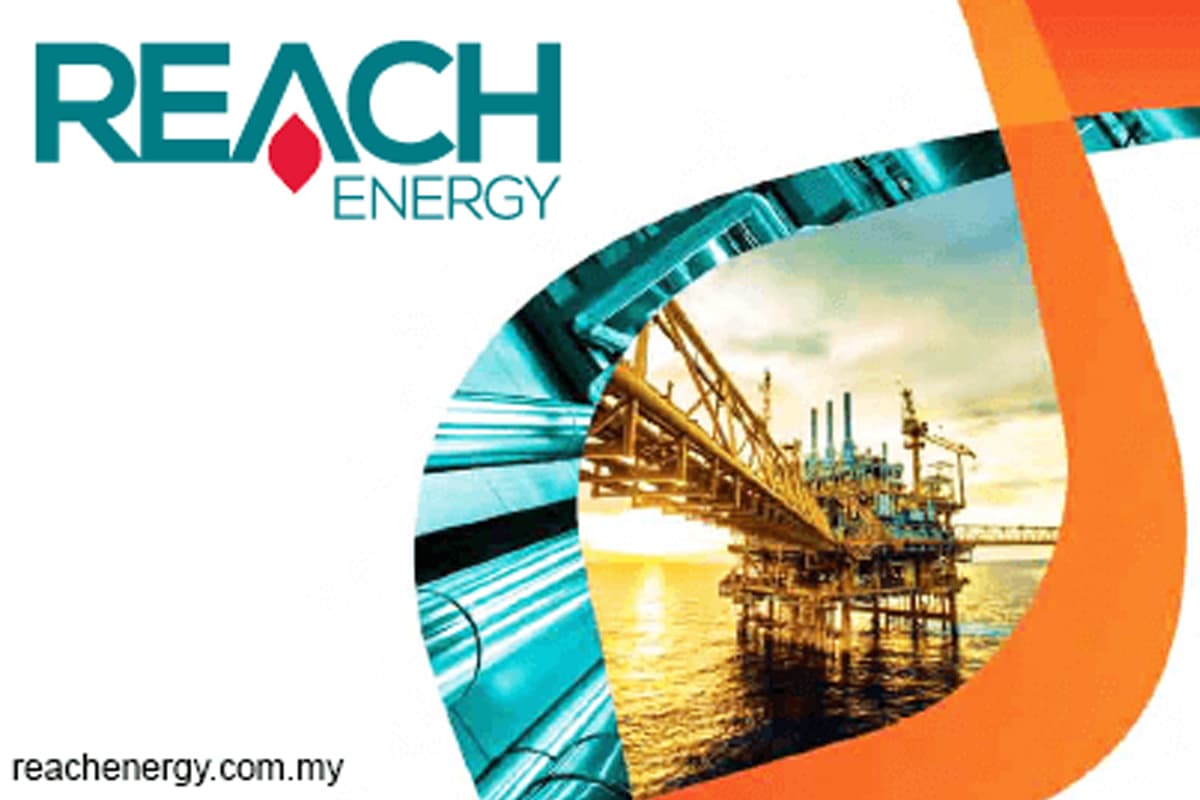
This article first appeared in The Edge Malaysia Weekly on July 4, 2022 - July 10, 2022
THERE appeared to be a divide among shareholders in Reach Energy Bhd (REB) even before the latest proposal that, if approved, would see the emergence of a new substantial shareholder.
The voting trend at the company’s annual general meeting held on June 28 suggests that some 42% of the shareholders were against the re-election of some of the key board members.
Chairman Tan Sri Azmil Khalili Khalid and fellow board members — Nik Din Nik Sulaiman, Datuk Jasmy Ismail and Yusoff Hassan — were voted in by only some 57% of shareholders. There was also strong opposition to the resolution approving the payment for directors’ benefits.
Two days later, on June 30, REB announced a proposal to issue 1.03 billion shares at 20 sen each as settlement of a RM205 million debt owing to Super Racer Ltd (SRL). The proposal, if approved, would see SRL emerge as a 48.5% shareholder in REB.
SRL intends to seek exemption from taking a mandatory takeover offer of REB’s remaining shares and outstanding warrants.
On the same day, REB’s second-largest shareholder, MTD Capital Bhd, disposed of 114 million shares or a 10.4% equity stake in REB and exited the company. The largest shareholder in REB is its management via Reach Energy Holdings Sdn Bhd.
The debt to SRL is traced to an oilfield in Kazakhstan called Palaeontol BV (PBV) from MIE Holdings Corporation (MIEH). REB paid US$175.9 million for a 60% stake and was supposed to buy the remaining 40%.
REB had, over the years, paid some portions for the 40% stake and still owes a total of US$63 million to MIEH. A portion of the debt has been assigned to SRL, which is now subject to a proposed settlement via issuance of shares.
“The issuance of new shares is subject to shareholder approval. The question is [that] there is 42% of shareholders that are against the management. Moreover, nobody knows who purchased MTD Capital’s 10.4% block,” says a shareholder.
Speculation is rife that Noor Azri Azerai, a young corporate personality who sits on the boards of a few companies, is now a shareholder in Reach. Noor Azri is on the board of Bintai Kinden Corporation Bhd, NWP Holdings Bhd and beleaguered Serba Dinamik Holdings Bhd.
The question is why would anyone be interested in REB.
A source says that with the current crude oil price at more than US$110 per barrel, companies such as REB are attractive.
“A company like REB is good for someone wanting to inject oil and gas assets since there are synergies with its core business. Other than that, it has an oilfield in Kazakstan where the production cost is low,” says a source.
However, anybody wanting to capitalise on the Kazakstan oilfield needs to incur more expenses in order to increase production.
To this end, REB obtained a US$9.3 million loan from Kazakhstan Bank in January 2021 to finance its capital expenditure (capex) investment, and plans to borrow an additional US$25 million to US$30 million in the next few years to finance its expansion plan.
REB was listed as a special purpose acquisition company (SPAC) and managed in 2016 to get a qualifying asset that was located in Kazakstan. The concession, called Emil-Oil LLP, was owned by PBV, in which REB took a 60% stake.
The remaining 40% was held by Hong Kong-based MIEH, which REB had to purchase in the subsequent years.
The Emir-Oil Concession Block consists of several discovered oilfields and prospects. Emir-Oil has obtained production contracts for the North Kariman and Yessen fields, allowing for commercial production of oil and gas from the locations for 17 and 26 years respectively, since Jan 1, 2020.
For the first quarter ended March 31, 2022 (1QFY2022), REB returned to the black with a net profit of RM366,000 — a vast improvement from a net loss of RM63.4 million the previous quarter. Revenue was RM51.2 million, dipping 6.2% quarter on quarter from RM54.6 million.
REB said the quarterly improvement in 1QFY2022 was attributable to higher Brent oil prices and higher production volume. However, it noted that operating expenses were higher due to an increase in production volume as well as additional provision of potential fines for non-fulfilment of contractual obligations in general and administration expenses.
For FY2018 to FY2020, REB suffered net losses of RM41.7 million, RM128.4 million and RM128.7 million, before narrowing its losses to RM53.1 million in FY2021.
REB credits its recovery to the successful implementation of turnaround initiatives, which resulted in a lower production cost of below US$10 per barrel, which in turn led to lower operating expenses.
“We further leveraged on the propitious economic environment through the commencement of our Emir-Oil Turnaround Plan (EOTP). The commencement of the EOTP was marked by the implementation of the Rebuilding Phase and the Transformation Phase in early 2021. The Rebuilding Phase involved an organisational restructuring to streamline our key functions and embolden our operational performance in the long run,” REB said.
But with changes in shareholding, will REB’s management stick around to see the transformation through?
Save by subscribing to us for your print and/or digital copy.
P/S: The Edge is also available on Apple's AppStore and Androids' Google Play.